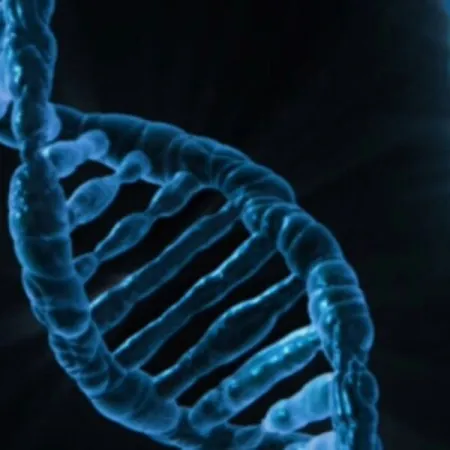
Breakthrough Discovery in Asthma Genetics by University of Chicago
2025-04-10
Author: Rajesh
Revolutionizing Asthma Research
A groundbreaking study from the University of Chicago (UChicago) has unveiled a method to identify genetic variations that trigger asthma in both children and adults. By harnessing advanced genetic data and computational models, researchers have tackled a critical issue in asthma research: distinguishing which genetic variants actually contribute to the onset of the disease.
Unlocking the Genome: The GWAS Challenge
Genome-wide association studies (GWAS) have pinpointed numerous areas in our DNA connected to asthma. However, confusingly, many variants have been identified without a clear understanding of their causal relationship to the condition. This ‘variant-to-function’ gap has been a major roadblock in translating genomic discoveries into practical applications.
Unique Insights into Childhood and Adult Asthma
The research team’s innovative approach revealed significant differences in genetic factors linked to childhood-onset versus adult-onset asthma. 'Our study distinctly highlights the unique characteristics of each type of asthma,' stated Professor Carole Ober, a key figure in the research. She emphasized that even when genetic locations appear similar, the underlying genes differ, suggesting these are fundamentally different diseases.
Bridging the Genetic Gap with Fine Mapping
To connect genetic variants to their functional roles, graduate researcher Ethan Zhong utilized the UK Biobank—a massive resource containing anonymized genetic data from nearly half a million UK residents. Employing a sophisticated technique known as ‘fine mapping,’ Zhong estimated the likelihood that specific genetic variants contribute significantly to asthma.
Power of Open Chromatin in Genetic Regulation
Zhong’s analysis included the examination of chromatin accessibility, shedding light on how certain regions of DNA become more active in regulating gene expression. By focusing on regions that were ‘open’ in relevant cell types, such as lung tissue, researchers could better pinpoint causal links to asthma traits.
Astounding Findings on Genetic Variants
The fine mapping identified 21 distinct sets of variants linked to adult asthma and an astounding 67 for childhood asthma, with a mere 16% overlap between the two groups. Furthermore, Zhong pinpointed 62 candidate genes associated with adult-onset asthma and 169 for childhood-onset, revealing the intricate web of genetic regulation involved.
Next Steps: Testing Candidate Variants
The research team, including Associate Professor Xin He, selected six promising candidate regulatory elements to test in bronchial epithelial cells. Remarkably, four of these demonstrated a regulatory effect, signaling progress towards identifying the specific cellular mechanisms driving asthma.
Supporting the Next Generation of Asthma Research
This pivotal study, partially funded by a National Institutes of Health grant, not only opens doors towards understanding the complex genetics of asthma but also sets the stage for potential targeted therapies that could transform treatment protocols in the future.
As the research landscape evolves, studies like these could lead to more personalized medicine approaches, ensuring that individuals with asthma receive the most effective treatments tailored to their unique genetic profiles.





 Brasil (PT)
Brasil (PT)
 Canada (EN)
Canada (EN)
 Chile (ES)
Chile (ES)
 Česko (CS)
Česko (CS)
 대한민국 (KO)
대한민국 (KO)
 España (ES)
España (ES)
 France (FR)
France (FR)
 Hong Kong (EN)
Hong Kong (EN)
 Italia (IT)
Italia (IT)
 日本 (JA)
日本 (JA)
 Magyarország (HU)
Magyarország (HU)
 Norge (NO)
Norge (NO)
 Polska (PL)
Polska (PL)
 Schweiz (DE)
Schweiz (DE)
 Singapore (EN)
Singapore (EN)
 Sverige (SV)
Sverige (SV)
 Suomi (FI)
Suomi (FI)
 Türkiye (TR)
Türkiye (TR)
 الإمارات العربية المتحدة (AR)
الإمارات العربية المتحدة (AR)